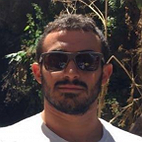Climate change is one of the most pressing issues of our time and one of the most challenging from an economic perspective. Even in developed nations, it’s proving difficult to eliminate human dependence on fossil fuels. For instance, many countries in Europe, including the UK, Denmark and Norway, have announced their intent to phase out gas-fueled vehicles within the next ten years. Still, critics within the automotive industry are vocal in their opposition.
In developing countries, the issue becomes almost existential. According to the United Nations, developing countries are likely to suffer disproportionately from the effects of climate change. This is partly because many developing countries naturally have a warmer climate and are often economically dependent on industries such as agriculture and tourism, which suffer more significantly from the effects of climate change.
However, there are signs that blockchain and cryptocurrencies are increasingly being used in the fight against climate change, providing hope to developing nations. One intriguing example called Treecoin has recently launched from Switzerland’s Crypto Valley, combining all the benefits of blockchain’s transparency with a crowdfunding token and crypto-economy, aimed at sustainable and profitable reforestation in Paraguay.
In Context - The Deforestation Challenge in Paraguay
Deforestation has long been a widespread problem across the South American region, but Paraguay is a case in point. According to the Global Forest Watch website, which tracks deforestation, Paraguay lost 17% of its tree cover loss between 2002 and 2019. The total areas of humid primary forest in Paraguay decreased by nearly a third. Most of the land was cleared to make way for the country’s agricultural sector, predominantly based on soybeans and beef for export.
However, the impact of deforestation is becoming evident in other environmental measures. In the year leading up to January 2021, Global Forest Watch reports nearly 20,000 alerts for wildfires. Furthermore, the change of land use from forest to agriculture accounts for 74% of Paraguay’s greenhouse gas emissions.
For its part, Paraguay’s government has introduced subsidies for reforestation initiatives and regulations obliging landowners to retain a certain percentage of their land as forest. However, it’s now an uphill effort.
Timber is in great demand in Paraguay. The country has no natural gas or petroleum sources, meaning that firewood is a primary energy source. However, the depleted forests are a barrier to meeting demand, meaning that the country has a further challenge. Timber is a renewable energy source, but without the forests to fulfill the need, Paraguay risks increasing its dependence on other sources of fuel.
Treecoin - A Sustainability Initiative Based on Blockchain
The founders of Treecoin have developed an innovative plan to use blockchain and cryptocurrencies to help address Paraguay’s deforestation problem while building a sustainable, profitable timber business that can provide a meaningful return for investors.
Treecoin operates based on two tokens on the Ardor blockchain. The first, called TREE, is a security token sold under the watch of Swiss financial regulator FINMA. The second token is a currency token called TXC.
Using the TREE STO proceeds, Treecoin has bought 12,500 hectares of land in Paraguay’s southeastern Villarrica region. In partnership with a local forestry firm, it plans to plant 10 million fast-growing eucalyptus trees that will be harvested for timber over 23 years. Treecoin plans to reinvest 50% of profits from the business into purchasing a further 59,450 hectares of land for reforestation.
The total profit projection over the long-term plan is $1.1 billion, of which 40% will be distributed back to TREE token holders as investors in the project. The other 10% of profits will be directed into social projects. The first project Treecoin will sponsor is a Children’s Center in Villarrica.
The TXC token will be used to generate a local economy around the token. The project will offer the token as a voluntary bonus to employees working on the forests and as a percentage of payments made to suppliers and partners. Treecoin also plans to partner with local merchants to accept TXC as currency, offering discounts to those who choose to pay with it. There will also be a local hotel to welcome investors and tourists visiting the plantation and an online shop selling local goods, both of which will run on TXC as the payment currency.
The Ardor Blockchain
Treecoin is based on the Ardor platform, partnering with Swiss blockchain firm Jelurida to implement the project. Because investors are based in remote locations to the plantation itself, the blockchain platform provides full transparency regarding how their investment is being spent via the Ardor block explorer. Participants in the project also get access to an Ardor-based web and mobile wallet to manage their TREE and TXC tokens. In the future, TREE tokens will be tradeable on an Ardor DEX.
Jelurida has some form when it comes to sustainability projects. Last year, the company worked with a group of other tech firms on an initiative funded by the Austrian government. Called "Hot City," it uses tokens to incentivize local residents to report micro-sources of waste heat so that they can be redirected back into the energy grid.
Treecoin is just one example, but it serves to illustrate that it’s not just the utility of blockchain that can add value to developing countries in their fight for climate change. The value generated by token economies around blockchain projects can also become a force for good, helping to generate employment in sustainable businesses and creating ethical investment opportunities that direct wealth where it can have the most impact.


